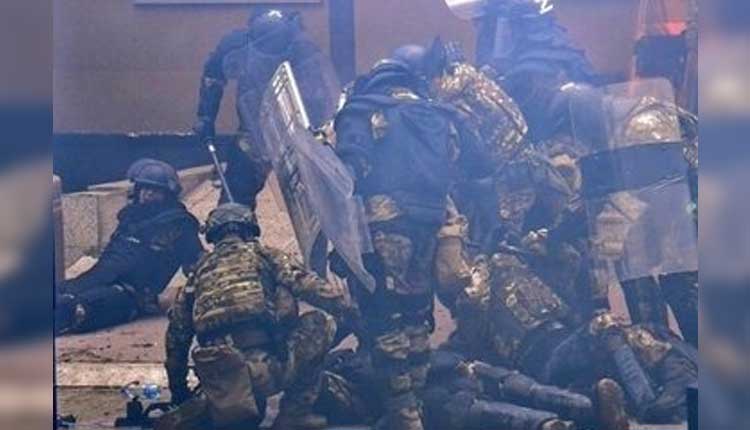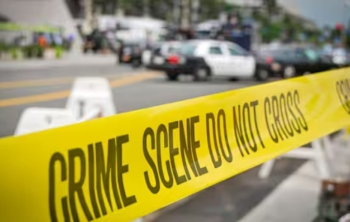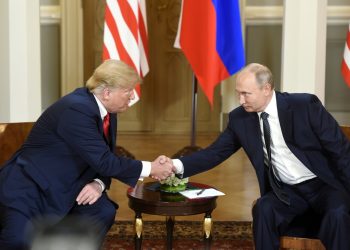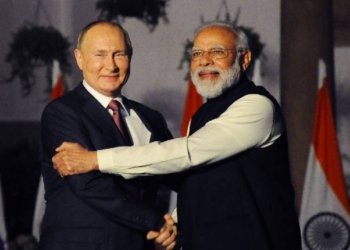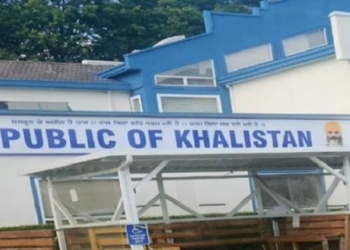Pristina: The US has announced measures against Kosovo after more than 90 people, including NATO soldiers, were injured in violent clashes in the country’s Serb-majority northern area.
In a statement on Tuesday, the American Ambassador in Pristina, Jeffrey Hovenier, said that the US “foresaw the consequences” of the decision to forcibly install ethnic-Albanian mayors in four majority-Serb municipalities, reports the BBC.
The US, a strong ally of Kosovo, said it had “strongly advised” Prime Minister Albin Kurti to change his course of action, but the advice was ignored.
As a result, Kosovo’s participation in a US-led NATO exercise, Defender Europe 23, has been cancelled.
Hovenier said the US was considering other measures and currently “has no enthusiasm” to assist Kosovo in its efforts to gain wider international recognition or progress towards membership of the European Union (EU) and NATO.
Washington’s move came a day after ethnic Serb protesters threw Molotov cocktails at NATO’s Kosovo Force (KFOR) troops and used batons to beat their riot shields, as the peacekeepers defended the municipal office in the northern town of Zvecan, CNN reported.
KFOR said 30 of its peacekeepers — mostly from its Italian and Hungarian contingents — were injured.
On Tuesday, the military alliance announced that it was deploying 700 additional forces to Kosovo following Monday’s clashes.
At least 52 protesters were also injured in Monday’s clashes which came amid ongoing unrest over the installation of ethnic Albanian mayors in areas where Serbs make up the majority of the population.
In April, ethnic Serbs had boycotted local elections in north Kosovo — allowing ethnic Albanians to take control of local councils with a turnout of less than 4 per cent.
Serbian President Aleksandar Vucic had called on ethnic Serbs in the region to boycott the elections, saying that they should no longer tolerate a foreign “occupation”.
Besides the US, there was global condemnation against Monday’s violence.
Speaking at a press conference in Brussels on Tuesday, Josep Borrell, the European Union’s foreign policy chief, said that he has spoken to both Vucic and Kurti “to urgently take measures to de-escalate tensions immediately and unconditionally”.
He added that the EU “condemns in the strongest terms the violence in the north of Kosovo that we have seen in the last few days”.
The French Foreign Ministry claimed that “it is more essential than ever for Pristina and for Belgrade to show responsibility by returning to the negotiating table with an attitude of compromise in the service of peace and the prosperity of the Serbian and Kosovar citizens.”
NATO chief Jens Stoltenberg said the violence “must stop”, adding that he strongly condemned “the unprovoked attacks against KFOR troops”.
Meanwhile, Kosovo’s Prime Minister Kurti told CNN on Tuesday that he would not surrender the country to what he described as “fascist militia”.
Kurti claimed the protesters in Zvecan were “a bunch of extremists under the direction of official Belgrade”.
In response, Vucic said Kurti “alone is responsible” for the disturbances.
Kosovo declared independence from Serbia in February 2008, after years of strained relations between its Serb and mainly Albanian inhabitants.
It has been recognised by the US and major European Union countries, but Serbia, backed by its powerful ally Russia, refuses to do so, as do most ethnic Serbs inside Kosovo.
(IANS)




